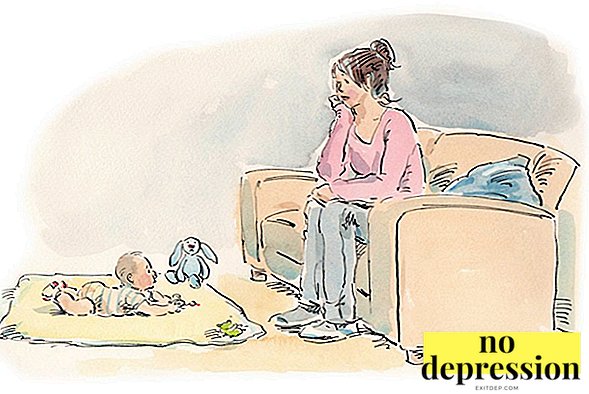Trying to keep the union, couples think how to avoid conflicts in the family, correctly establish relationships.
Here it is necessary to choose the right tactics, prioritize and lead.
Family conflict - what is it?

Conflict families are what? Family is full-featured structure.
Its members interact as close as possible to each other, live on the same territory.
Crises, conflicts arise in any familybut their number and severity are different.
Family conflicts are connected with the desire to satisfy certain needs, to avoid negative impact, to create conditions for their own interests, without taking into account the needs of a partner.
Conflict Features:
- determined by structural proximity;
- emotions are included in interactions;
- there are legal obligations;
- the existence of moral obligations to the spouse;
- various methods of conflict management are used;
- directly related to crisis periods of family development;
- protracted conflicts directly affect the mental state of the participants, affect health, causing aggravation and the emergence of various diseases;
- Relationship between spouses affect children.
Conflicts often occur in dysfunctional families, where the din or both spouses suffer from alcohol and illicit substance abuse.
In families where frequent scandals occur, constant voltage present.
In severe cases, the conflict is visible even to strangers, when the spouses are no longer able to restrain their emotions, and go to confrontation for any reason. Often there is also a manifestation of violence towards the spouse and children.
Types of conflict situations

There is a different systematization of intra-family conflicts.
Most simple - division into constructive and destructive.
The former lead to a positive effect on family life, the latter destroy relationships and often become the cause of divorce.
Also conflicts are divided into the following types:
- topical - bright, quickly inflaming, caused by a specific cause;
- progressive - arise gradually, more and more flare up; the main reason is the inability to adapt to each other, to find a compromise;
- habitual - established relationships that cannot be changed due to certain habits, such conflicts arise on the same occasions and develop according to a single scenario.
Conflicts in the family are divided into explicit and implicit.
The first are vividly expressed, their reason is clear. The second pass in a hidden form, there is hostility on one or both sides, isolation, irritability, fatigue.
Psychology and causes
Why do interpersonal conflicts occur in the family? Before looking for ways to resolve disputed situations, it is important to understand the reasons for their appearance.
Between parents and children

Perfect relationship between parents and descendants are quite rare.
In such families there is the wisdom of the older generation, the ability to find the right approach to their children.
Quarrels - the natural accompaniment of the development of children.
Father and son
The father wants to instill in his son certain norms and rules of behavior in accordance with his own attitudes and concepts. Maturing son constantly feels the pressure of adults and seeks to get rid of control and get free rein.
If the father is authoritarian, restricts actions, promptings, thoughts, then sooner or later he encounters resistance.
In dysfunctional families, where, for example, the father is an alcoholic, a conflict may arise on this basis, when the son sees the deviant behavior of the father and the child, this angers, alarms, causes a feeling of anger.
The son is faced with the need to protect his mother from the attacks of an aggressive spouse, which also leads to quarrels, and in some cases to physical violence.
Mother and adult daughter

Maturing daughter reminds mother of her age.
This causes certain negative feelings, psychological discomfort.
Many mothers want their daughter to meet their expectations, live in accordance with certain rules, norms, marry safely.
However, the girl seeks to escape from excessive parental care, to get freedom and begin to live independently. Persistent advice, teachings may be hostile.
Opinion psychologist about conflicts between parents and children:
Matrimonial
Quarrels between husband and wife - common causes family differences.
Often they try to involve children into the conflict, which negatively affects their mental state, increasing the level of stress and becoming the cause of childhood trauma.
Family household
Occur on the basis of a conflict of interest. Often the cause becomes unstable financial environmentwhen the family lacks livelihoods.
There is a constant dissatisfaction of one or both spouses, an attempt to regulate the budget, take control, allocate resources.

Conflicts in the family can arise and on the basis of the separation of spheres of influencewhen one of its members shows authoritarianism, demands complete submission, the other does not agree with this and resists.
Another common cause of domestic quarrels is treason, suspicion of it, jealousy.
In a young family
Occur due to the fact that people have not yet learned to build a life. They do not understand in which direction they should develop, how to compromise, build family relationships, while respecting the interests of the partner, but also not forgetting about their own.
Disagreements may arise on the basis of discrepancies in sexual needs.
Although at first the intimate life is usually intense, the need for contact frequency is different. One of the partners may be less sexually liberated, which causes a bright dissonance in the relationship.
Why do conflicts arise in a young family and how to cope with them? Find out from the video:
Between children

Parents are often faced with the fact that their children have constant quarrels.
Boys can fight for rivalry, especially if the age between them is minimal.
Brother and sister can be jealous of parents to each other, they have a struggle for attention. If adults love one of the children more, then this causes psychological discomfort in the second child.
Deserve special attention children from different marriages. Conflicts in this case are almost inevitable. Consultation with psychologists is often required. Children in this case must accept the fact of having each other, that their parent has a new partner and there is still a progeny.
The expert will help to understand the types of children's conflicts, as well as give useful tips:
With mothers-in-law and mother-in-law
Disagreements in this case arise over the fact that parents don't like choosing your own child.
They are especially evident in social inequality, when one of the families has lower incomes, status, a different, less attractive origin.
Conflicts arise also on the basis of the disagreement of interests and characters.
Effects
Family conflicts disrupt the normal course of life of a small cell of society. It affects not only adults, but also children.
The negative effects of conflict:
- constant tension within the family;
- finding each member of the group in a stressful situation;
- loss of performance;
- the emergence of fears, fears for their lives with obvious threats;
- divorce;
- physical violence;
- the development and exacerbation of diseases against the background of constant stress;
- depressed group members;
- probability of suicidal behavior;
- mental injury in a child who stays with him for life;
- search for one or both spouses of peace, love, attention on the side, that is treason.

Family conflicts are inevitable, but each time their strength may increase, discontent grows, until one of the family members decides to take a responsible step - a break.
How to solve a problem?
How to resolve the conflict in the family? In the event of a conflict There are ways of the most unsuccessful behavior that exacerbate the problem:
- open confrontation - leads to protracted quarrels, threats of physical violence from the stronger;
- silence, avoiding the search for a solution;
- a bystander, when one of the spouses is waiting for a certain behavior of the partner, but he may not suspect that they want from him.
How to solve conflicts most painlessly and advantageously for both parties?
- Dialogue. The problem should be discussed constructively, calmly, without raised tones. Each spouse must express his point of view, goals, possible solutions.
- Negative avoidance - ignoring, harsh accusations, shouts, belittling of the person
- Be able to change. Conflicts can occur due to the fact that the partner has habits that cause negative emotions in a loved one. In some cases, it is worth revising your lifestyle, way of action, if it is so important to maintain good relations. The ability to change is associated with its own development.
- Spouse significance. How important is the spouse, living together with him? Emphasizing significance helps to reduce the degree of tension in the conflict. It is important to be able to express gratitude, to show respect, despite the occurrence of a disputed situation.
- Quarrel, finding out the relationship between adults should not occur in front of children. The child very keenly perceives the conflict between the parents, remembers it.
- Be able to recognize your own mistakes. Not everyone is able to accept the fact that he was wrong. Mind, self-esteem resists. However, if you admit that you are wrong, this does not mean a loss of respect from others, on the contrary, it tells you that you have an adequate perception of reality.
- It is important to find the cause of contention. Unfortunately, many quarrels arise out of nowhere, simply because one of the partners has a bad mood, an ugly character, excessive demands, mental deviations.
- Look for a support partner. Let him know that you need his help, this will reduce tensions, and the conflict will gradually ease.
- Use a sense of humor. Tactics must be applied carefully, so that humor does not develop into a frank mockery of the partner’s actions.

In the preservation of the family world plays an unimportant role, whether the spouses have respect for a loved one, the desire to preserve the relationship.
In this video you can learn more about how to avoid family conflicts:
Prevention
The family will not last long only on some feelings. You need the ability to establish a constructive dialogue, time to compromise. Value has segregation of duties and agreement of partners with this.
Choosing the head of the family - One of the highlights of the prevention of family conflicts. If there is a constant struggle for the championship, scandals are inevitable.

Family is constant the need to jointly resolve various issues: household, financial, childbirth, rest, repair.
The more disagreements and discrepancies of interests and directions of movement, the more often and brighter conflicts.
To maintain peace in the family, both partners must be ready to work together, do not give up when difficulties arise, strive to help a loved one in a difficult situation, to support.
In the development of family psychologists take into account the stages and periods of crisis. A crisis - This is a turning point, it is inevitable. It is this time that happens the most divorces.
The pair must be ready for a difficult period, understand its features and do everything to prevent the onset of acute periods.
12 ways to resolve family conflicts:
How to overcome the conflict with her husband?
Women are more emotional, acutely react to changes in the behavior of the husband, his attitude towards himself, sometimes he thinks up something that does not exist. The spouse needs to apply wisdom, tactics, female cunning.
Fundamental rules:
- Respect individual freedom, interests, if they do not harm family well-being and health.
- Be able to thank.
- Avoid insults.
- Take into account the peculiarities of character. If you know on what grounds the scandal usually inflames, then avoiding it is easier.
- Do not be afraid to engage in dialogue. If you are not satisfied with something, try to calmly discuss it.
- Learn to solve issues together.
Remember that family conflicts inevitable. Friendly family is constantly evolving, taking into account the interests of its members, on time goes to the dialogue and concessions.
How to stop quarreling with her husband? Psychologist tips:



